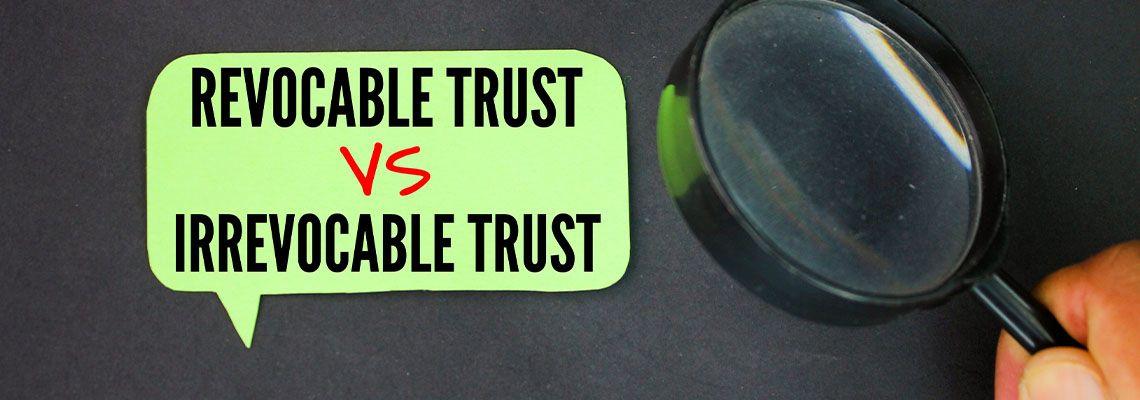
Do I Need a Trust in North Carolina? Breaking Down Revocable vs. Irrevocable
Protecting your family's future might have you thinking whether a trust is the right choice for your needs. The answer isn't always straightforward.
At Palmer Estate Planning, Attorney Duffy Palmer knows how overwhelming estate planning decisions can feel, which is why they're here to break down the basics of trusts and help you understand your options. Located in Cary, North Carolina, the firm serves clients throughout Cary, Durham, Chapel Hill, Greensboro, and surrounding communities.
Their attorney has built his practice around one core belief: family comes first. With years of experience in estate planning and administration, he's dedicated his career to helping families prepare for their futures and supporting them through difficult times. What sets the firm apart is Duffy's ability to listen to your needs and simplify legal concepts.
Whether you're considering setting up trusts or protecting assets during major life changes, Palmer Estate Planning is here to provide the knowledgeable guidance you deserve. When you're dealing with something as important as your family's financial security, you need an attorney who understands both the legal complications and the emotional weight of these decisions.
What Exactly Is a Trust?
A trust is a legal arrangement where you transfer ownership of your assets to a separate entity managed by a trustee for the benefit of designated beneficiaries. Think of it as creating a special container for your assets that operates according to the rules you set up.
The person who creates the trust is called the settlor (or grantor). The trustee manages the trust assets and follows the instructions you've laid out in the trust document. The beneficiaries are the people (or organizations) who will ultimately benefit from or receive the trust assets.
Trusts can serve many purposes, from avoiding probate to reducing taxes, protecting assets from creditors, or providing for family members with special needs. The key is determining which type of trust aligns with your goals.
Understanding Revocable Trusts
A revocable trust, also known as a living trust, gives you the flexibility to modify or dissolve the trust during your lifetime. As the grantor, you typically serve as the initial trustee, maintaining complete control over your assets while they're held in the trust.
Benefits of Revocable Trusts
Probate avoidance: Assets held in a revocable trust pass directly to beneficiaries without going through the probate process. This can save time, money, and protect your family's privacy.
Incapacity planning: If you become incapable of managing your affairs, your successor trustee can step in immediately to handle trust assets. This provides seamless management without court intervention.
Privacy protection: Unlike wills, which become public record during probate, trust documents remain private. Your family's financial affairs stay confidential.
Flexibility: You can modify beneficiaries, change distribution terms, or even revoke the trust entirely as long as you're mentally competent.
Limitations of Revocable Trusts
No tax benefits: Since you retain control over the assets, they're still considered part of your taxable estate. Revocable trusts don't provide income tax advantages during your lifetime.
Limited asset protection: Because you can revoke the trust, creditors can typically reach trust assets to satisfy your debts.
Ongoing management: Trusts require continuing administration, which means keeping detailed records and potentially filing separate tax returns.
Understanding Irrevocable Trusts
An irrevocable trust is permanent once established. You give up ownership and control of the assets you transfer into the trust, and generally you cannot modify or revoke the arrangement without beneficiary consent or court approval.
Benefits of Irrevocable Trusts
Estate tax reduction: Assets transferred to an irrevocable trust are typically removed from your taxable estate, potentially reducing estate taxes for your heirs.
Asset protection: Since you no longer own the assets, they're generally protected from your creditors and legal judgments.
Tax advantages: Depending on the trust type, you might achieve income tax benefits or gift tax savings.
Medicaid planning: Properly structured irrevocable trusts can help protect assets from Medicaid spend-down requirements for long-term care.
Limitations of Irrevocable Trusts
Loss of control: Once you transfer assets, you typically cannot change your mind or modify the trust terms without significant legal hurdles.
Complexity: These trusts often require more sophisticated planning and ongoing management.
Irrevocability: The permanent nature means you need to be absolutely sure about your decisions before proceeding.
Do You Actually Need a Trust in North Carolina?
The answer depends on your circumstances, goals, and the size of your estate. Here are some situations where a trust might make sense:
You own real property in multiple states: A revocable trust can help avoid multiple probate proceedings in different states.
You have minor children or beneficiaries with special needs: Trusts allow you to control how and when assets are distributed, protecting vulnerable beneficiaries.
You value privacy: If keeping your financial affairs private is important, trusts offer more confidentiality than wills.
You're concerned about incapacity: Trusts provide a smooth transition of asset management if you become incapable of handling your affairs.
You have a larger estate: Depending on your net worth, certain trust strategies might help reduce estate taxes.
You own a business: Trusts can facilitate business succession planning and provide continuity for your company.
However, trusts aren't always necessary. If you have a smaller estate, are comfortable with the probate process, or prefer simpler planning tools, a comprehensive will-based estate plan might be sufficient.
North Carolina Trust Laws and Legal Considerations
North Carolina has adopted the Uniform Trust Code, which provides a comprehensive framework for trust creation, administration, and enforcement. This law offers several important provisions that affect how trusts operate in our state.
Under North Carolina law, you have significant flexibility in designing trust terms, but certain requirements must be met for validity. The trust must legal and valid, have a lawful purpose, identifiable beneficiaries and a trustee, and hold or own assets.
The state recognizes both revocable and irrevocable trusts, with specific rules governing how each type operates. For revocable trusts, North Carolina law provides clear guidance on the settlor's (or grantor's) retained powers and the trustee's duties during the settlor's (or grantor's) lifetime and after death.
One important consideration is North Carolina's approach to trust taxation. While revocable trusts are generally ignored for tax purposes during the grantor's lifetime, irrevocable trusts may face state income tax obligations depending on their structure and the source of their income.
The state also has specific rules about trust administration, including trustee duties, beneficiary rights, and the process for modifying or terminating trusts. These laws provide important protections for beneficiaries while giving trustees clear guidance on their responsibilities.
Making the Right Choice for Your Family
Choosing between a revocable trust, an irrevocable trust, or no trust at all requires careful consideration of your family's unique circumstances. You should evaluate your current financial situation, your estate planning goals, your comfort level with complexity, and your family's needs.
Remember that trusts work best as part of a comprehensive estate plan that might also include wills, powers of attorney, advance directives, and other planning tools. The goal is to create a cohesive strategy that protects your family and accomplishes your objectives.
Trust and Estate Planning Attorney in Cary, North Carolina
Estate planning doesn't feel intimidating when you work with an estate planning attorney who understands your concerns. Palmer Estate Planning provides the insights and guidance you need to make confident decisions about your family's future.
The firm believes that family relationships are the foundation of everything worthwhile, which is why they've built their practice around helping families plan for tomorrow and supporting them through loss. From establishing trusts to protecting assets during major life transitions, Duffy strives to understand your situation and explain your options clearly.
Located in Cary, North Carolina, the firm serves Cary, Durham, Chapel Hill, Greensboro, and surrounding communities. Call now to schedule a consultation.
